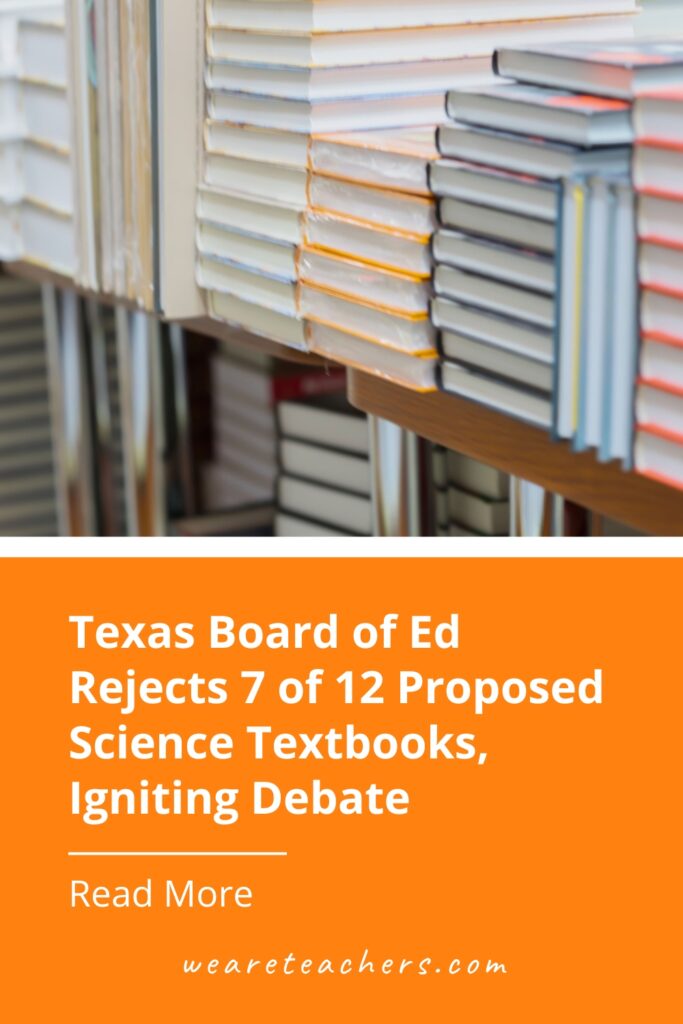The Texas Board of Education’s recent decision to reject 7 of 12 proposed eighth-grade science textbooks has ignited a debate surrounding educational content and climate change. In a move reflecting the current political climate, the Republican-controlled board primarily objected to the textbooks’ inclusion of policy solutions for climate change or their production by companies with Environmental, Social, and Governance (ESG) policies.
The key reasons for rejection include a focus on the climate crisis, portrayals of fossil fuel use, alignment with environmentally friendly corporate policies, and a lack of balance between teachings on evolution and creationism.
Texas is making some big changes to their eighth-grade science curriculum by including climate change topics for the first time. However, there’s a twist. Unlike most states that follow the Next Generation Science Standards, which really highlight how serious and human-driven climate change is, Texas is charting its own course.They’re not exactly aligning with these widely used standards.
Texas remains one of only six states not adhering to Next Generation Science Standards.
The board’s choice to turn down these textbooks, ones that might actually fit with these standards, kind of throws a curveball in how Texas is dealing with teaching climate change. Consequently, it seems like they’re not quite sure which direction to go in when it comes to this part of the curriculum.
How local leaders are responding
The board’s recent decision is causing quite a stir. Marisa Perez-Diaz, a Democrat from San Antonio who’s on state Board of Education, has raised concerns about how this decision might limit their choices in future textbook selections, particularly those that offer varied perspectives, including texts in Spanish. She strongly believes that students in Texas deserve access to comprehensive and appropriate educational materials. On the flip side, Wayne Christian from the Texas Railroad Commission is advocating for more emphasis on fossil fuels in the curriculum, and he’s critical of what he sees as the “woke environmental agenda” in climate science.
What does this mean for educators?
What’s going on in Texas right now is part of a bigger trend we’re seeing, where Republican lawmakers are getting more and more involved in shaping what gets taught in schools, not just in science but also in subjects like the humanities. They’re introducing laws that affect how topics like race, gender, and history are taught. This is really worrying a lot of teachers and parents, and it’s the students who are ending up feeling the impact the most. As educators, we’re right in the middle of this mix of policy and teaching. This whole situation really highlights how political decisions can influence what we teach and how our students learn. Most schools will probably stick to the state-approved textbooks, so we’ve got to think about how this affects our teaching. How do we handle these changes and still give our students a well-rounded, fact-based education?
The board’s decision is indicative of a larger pattern of political influence over educational content. However, it’s crucial to remember the essential role of science education in preparing students for an ever-evolving world. As educators, our core mission is to nurture critical thinking and provide our students with the necessary knowledge and skills to confront and solve global challenges, including those posed by climate change. Our responsibility is to guide them in understanding these complex issues and equipping them to make informed decisions.
As we move forward, it is imperative that we, as educators, remain engaged in these conversations, advocating for educational materials that not only meet curriculum standards but also prepare our students to be informed and active participants in addressing the challenges of our time.
For more articles like this, be sure to subscribe to our newsletters.


